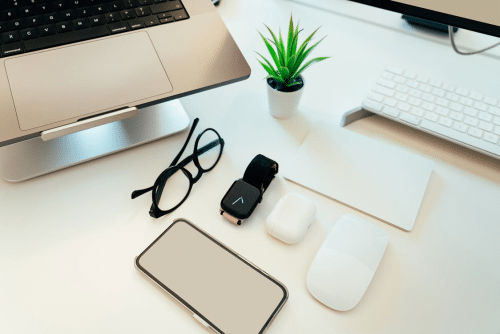The Truth About Multitasking and Your Brain
Brian Taylor May 13, 2025
Multitasking is often seen as a productivity booster in today’s fast-paced world, but what if it’s actually doing more harm than good? The truth about multitasking and your brain may surprise you. While we’ve been led to believe that multitasking helps us get more done in less time, recent studies reveal that it can severely hinder our cognitive abilities. This article will explore the truth about multitasking and your brain, shedding light on its negative impacts and offering alternatives for better productivity.

What Is Multitasking?
Multitasking refers to the act of performing multiple tasks simultaneously. From checking emails while attending virtual meetings to texting while cooking dinner, multitasking is an essential skill for many. But is it really beneficial, or does it hurt our brains? The truth about multitasking and your brain is far more complicated than we once thought.
The Brain’s Limited Capacity for Multitasking
The human brain is not designed to handle multiple tasks at once. Although it may seem like we are managing multiple tasks simultaneously, research shows that we are simply switching between them rapidly. This constant switching can negatively affect brain function, particularly when tasks require focused attention. According to Dr. John Medina, author of Brain Rules, our brains are more efficient when performing one task at a time. “When we switch tasks, the brain must reset, which consumes valuable cognitive resources and time” (Medina 2014). This is where the truth about multitasking and your brain becomes clear: our brains aren’t optimized for it.
Research from Stanford University also found that people who frequently multitask perform worse on cognitive tests, are more likely to make mistakes, and take longer to complete tasks (Ophir et al. 2009). Multitasking may feel productive, but it’s actually a productivity killer.
The Cognitive Consequences of Multitasking
The truth about multitasking and your brain reveals that it can lead to several cognitive challenges. These include:
1. Reduced Working Memory
Multitasking significantly drains your working memory, the part of the brain that holds and manipulates information. Studies have shown that when you multitask, your brain has to constantly juggle tasks, making it harder to retain and use information effectively. This can lead to forgetfulness and poor decision-making.
2. Increased Stress and Anxiety
Constantly switching between tasks can increase stress levels. The American Psychological Association has linked multitasking to higher levels of anxiety and cognitive fatigue. Your brain is working overtime to manage multiple tasks, leaving you feeling mentally drained.
3. Impaired Decision Making
When multitasking, your brain relies on shortcuts, which often leads to impulsive and less rational decisions. A study published in the Journal of Experimental Psychology revealed that multitaskers are more likely to make mistakes because they don’t fully process information (Rosen et al. 2013). This demonstrates the negative impact multitasking has on the brain’s ability to make sound decisions.
Multitasking and Your Health
It’s not just your productivity that suffers when multitasking; it can also have a long-term impact on your health. Here’s how multitasking negatively affects both your mind and body:
1. Disrupted Sleep Patterns
Research from the Journal of Communication highlights that multitasking with devices during the day, particularly with exposure to blue light, can interfere with your sleep. As a result, you may struggle to fall asleep, which leads to poor mental performance the next day (Exelmans and Van den Bulck 2016). This is a direct consequence of the truth about multitasking and your brain: it doesn’t just affect your cognitive functions during the day—it impacts your sleep quality too.
2. Decreased Emotional Intelligence
Emotional intelligence (EQ) refers to your ability to understand and manage emotions, both your own and others’. A study from the University of California found that people who multitask frequently tend to have lower EQ levels. This may be because multitasking reduces the brain’s capacity to regulate emotions effectively.
So, What Should You Do Instead?
The truth about multitasking and your brain shows that constantly juggling tasks is not the key to productivity. Instead, consider adopting strategies that help you focus and work more effectively:
1. Single-Tasking
One of the best alternatives to multitasking is single-tasking. By focusing on one task at a time, you give your brain the attention it needs to complete each task more efficiently. Studies have shown that single-tasking can actually boost your productivity and cognitive performance, allowing you to finish tasks with greater ease and fewer mistakes.
2. The Pomodoro Technique
The Pomodoro Technique is another useful strategy. It involves working in focused intervals, typically 25 minutes, followed by a short break. This method allows you to maintain concentration without burning out or feeling overwhelmed by multitasking.
3. Mindfulness and Meditation
Practicing mindfulness and meditation helps train your brain to focus better, reducing the urge to multitask. These practices have been shown to improve memory, reduce stress, and enhance overall cognitive function. A study from Harvard University found that mindfulness can enhance both memory and decision-making skills (Zeidan et al. 2010).
Conclusion
In conclusion, the truth about multitasking and your brain is clear: multitasking is not the productivity booster we once thought it was. While it may seem like an effective way to handle multiple tasks at once, it actually reduces efficiency, increases stress, and harms cognitive function. Instead, focus on techniques like single-tasking, the Pomodoro Technique, and mindfulness to optimize your productivity without overburdening your brain.
References:
- Medina, J. (2014) Brain Rules. Seattle: Pear Press.
- Ophir, E., Nass, C. and Wagner, A.D. (2009) ‘Cognitive control in media multitaskers’, Proceedings of the National Academy of Sciences, 106(37), pp. 15583–15587.
- Rosen, L.D., et al. (2013) ‘Multitasking and academic performance’, Journal of Experimental Psychology, 16(5), pp. 394-406.
- Exelmans, L. and Van den Bulck, J. (2016) ‘The effect of media multitasking on sleep and well-being’, Journal of Communication, 66(3), pp. 342-363.
- Zeidan, F., et al. (2010) ‘Mindfulness meditation improves cognition: Evidence of brief mental training’, Consciousness and cognition, 19(2), pp. 1201-1207.





